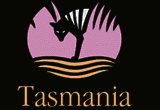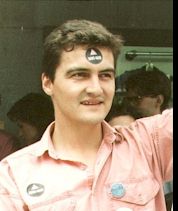 |


Rodney Croome Says Society is Encouraging Deaths Youth Suicides Due to Narrow Social-Sexual Pressures |
Drawing attention to the recent suicide of a Tasmanian youth because of homophobic abuse, Mr. Croome said there can be no justice in Australian society until it has recognized that it has systematically infringed the rights of sexual minorities, acknowledged the pain it has caused them, and allowed "young men and women to grow-up filled with such joy at the gift of being gay that they would recoil in horror at the thought of suicide". "Until then there will simply be a tyranny of one sexuality – heterosexuality--over all others", Mr. Croome said. The 60 people who attended the launch on Friday evening in Melbourne also heard from Chief Justice of the Family Court, Justice Alistair Nicholson. A Just Society? is a collection of essays from 12 Australians, including Rodney Croome and Alistair Nicholson, about access to justice in contemporary Australia. The book is aimed at secondary and TAFE students. Text of Rodney Croome's Speech:
He died because this society did everything it could to encouraged his death and nothing to stop it. It instilled in him a deep and abiding sense of shame and worthlessness. It filled his peers with a profound ill-will, armed them with the words to inflict their malice, and permitted them to attack. Then, having systematically made his young life hell, society just as systematically denied him all hope. Parents were oblivious to his pain, schools denied his predicament, governments washed their hands of him, his gay brothers could not get near him. He had nowhere to go, no-one to turn to, and in his estimation, nothing worth living for. Today I have been asked to speak firstly about how the work of the Tasmanian Gay and Lesbian Rights Group changed access to justice for gays and lesbians in Tasmania, and secondly what impact reading about this experience is likely to have on high school and TAFE students. A quick response to the first issue is that through a combination of intense community education, sometimes very confronting direct action and the exploitation of every available avenue for legal appeal we turned Tasmania from a jurisdiction one of with the worst lesbian and gay human rights regimes in the western world to one of the best. As well as achieving complete equality for homosexual and heterosexual people within the criminal law, we now have an Anti-discrimination Act that prohibits discrimination and vilification on the grounds of sexual orientation without exception, as well as a new Education Department anti-homophobia policy, the implementation of which is mandatory for all schools. Even more satisfying is the fact that these changes have the endorsement of the people of Tasmania. According to opinion polls, community attitudes in Tasmania, once so very negative towards homosexuality, are now some of the most tolerant in the nation. An equally quick response to the second issue is that I hope by reading of the Tasmanian experience high school and TAFE students will learn two simple lessons. Firstly that attempts to achieve justice at a local level can create the most profound and enduring of all social change. It is at the local level that it is possible to change hearts and minds as well as laws and policies, and as the Tasmanian example shows, change at a local level can ramifications nationally and globally.
 The second lesson taught by gay law reform in Tasmania is that in a relatively
open society such as Australia it is possible to achieve justice if those who are experiencing
injustice have the desire and the resources to engage those around them in
a dialogue about the need for change.
The second lesson taught by gay law reform in Tasmania is that in a relatively
open society such as Australia it is possible to achieve justice if those who are experiencing
injustice have the desire and the resources to engage those around them in
a dialogue about the need for change.
Australians are essentially rational and fair-minded people and will respond thus, if they are adequately informed about the plight of those amongst them who are suffering. For a more details about exactly how Tasmania was transformed I suggest you read my chapter in this book. Today I want to talk not about the past but about the future. As dramatic as the changes in Tasmania have been, they take this country, and its lesbian and gay minority, only inches down the long road to justice. Newly elected openly gay Senator, Brian Greig, has labeled the treatment of lesbian and gay Australians as a kind of sexual apartheid. He is right. The failure of Governments to grant us the myriad of rights enjoyed by heterosexuals - rights in areas such as superannuation, wills, workplace conditions and entitlements, health care, and insurance - is as systematic as any example of institutionalized racism. And like institutionalized racism the discrimination we experience assigns us a second class citizenship, and robs us of our dignity and our opportunities. But beyond and below the inferior legal status which lesbian and gay Australians endure, we are allocated an inferior social status. This status has its overt expression in the rage of a father who discovers his daughter is a lesbian, the chants of fundamentalists driving out the demon of homosexuality from a young bewildered member of their congregation, or in the fists of a youth gang attacking a gay man in the street. But don't be fooled. More often than not our inferior status in this society is expressed through silence, denial and petty abuse the kind of silence, denial and petty abuse which sent a Launceston high school captain to his grave. Until this society recognizes that it has consciously, willingly, systematically and determindly infringed our rights, robbed us of hope and taken our lives. Until it acknowledges the overwhelming pain and suffering it has caused us, and regrets the inestimable loss to itself. Until young men and women can grow-up filled with such joy at the gift of being gay that they would recoil in horror at the thought of suicide. Until then there will be no "just society". Until then there will simply be a tyranny of one sexuality - heterosexuality - over all others. My hope is that the story of what we did in Tasmania will instruct and inspire others to end this tyranny. If it does our work would was very worthwhile. Thank you for listening. |


